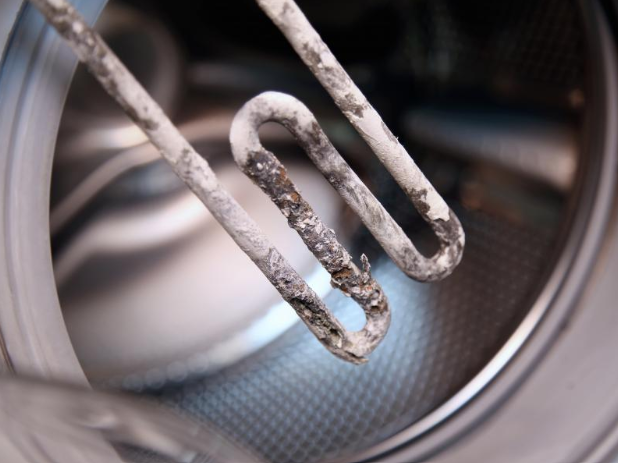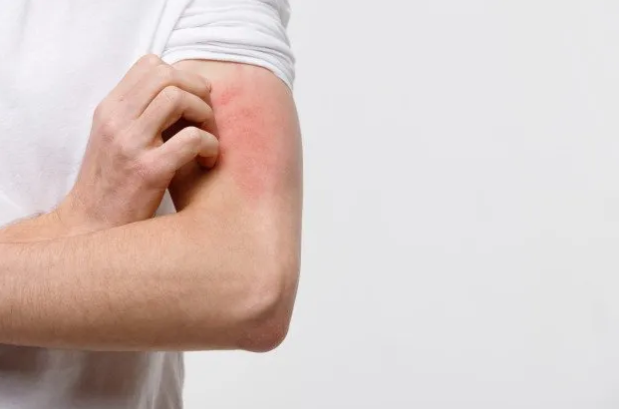Water is an essential part of our daily lives, but not all water is created equal. If you’ve ever noticed spots on your dishes or a filmy residue on your shower doors, you might be dealing with hard water.
But what exactly is hard water, and how does it affect you and your home? In this comprehensive guide, we’ll answer all your questions about hard water.

What Is Hard Water?
Hard water is water that contains a high concentration of dissolved minerals, primarily calcium and magnesium.
These minerals are picked up as water travels through rock and soil. While hard water is not harmful to your health, it can have a significant impact on your home and daily activities.
How Do I Know If I Have Hard Water?
There are several signs that you might have hard water:
- Soap Scum: A filmy residue on shower doors, bathtubs, and sinks is a common indicator of hard water.
This soap scum forms because the minerals in hard water react with soap, making it less effective and more difficult to rinse away. - Spotty Dishes: If you notice spots or streaks on your dishes and glassware after washing, hard water is likely the culprit. The minerals in hard water can remain on surfaces even after they’ve dried.
- Limescale Buildup: White, chalky deposits around faucets, showerheads, and inside appliances like kettles and dishwashers are signs of limescale, which is caused by the minerals in hard water.
- Reduced Soap Lather: Hard water makes it difficult to get a good lather from soap and shampoo, meaning you might use more product to achieve the desired effect.
- Dull Laundry: Clothes washed in hard water can look dull and feel scratchy, as the minerals in the water can get trapped in the fabric.
If you notice any of these signs, it’s likely that you have hard water.
Visual Indicators
One of the first ways people notice hard water is through visual indicators. For example, you may see spots on your dishes or a white film on your shower doors.
These are caused by the minerals in hard water, which don’t rinse away as easily as they would in soft water. Over time, these minerals build up and become more noticeable.
Behavioral Indicators
Another way to tell if you have hard water is through behavioral indicators. For example, if you find that your soap or shampoo doesn’t lather as well as it should, this could be a sign of hard water.
Similarly, if your clothes feel stiff or scratchy after washing, this could be another indication.
Testing for Hard Water
If you suspect you have hard water, you can perform a simple test at home. Fill a clear bottle with water, add a few drops of liquid soap, and shake vigorously.
If the water remains cloudy and produces little suds, you likely have hard water.
Why Is Hard Water a Problem?
While hard water is not harmful to your health, it can cause a variety of issues in your home:
- Plumbing Problems: The minerals in hard water can build up inside your pipes, reducing water flow and leading to clogs. Over time, this can result in decreased water pressure and potentially costly repairs.
- Appliance Damage: Hard water can reduce the lifespan of appliances like dishwashers, washing machines, and water heaters. The scale buildup from hard water makes these appliances less efficient and more prone to breakdowns.
- Increased Cleaning Efforts: Hard water can make cleaning more difficult and less effective, leading to more time and effort spent on household chores.
You might find yourself scrubbing more to remove soap scum and limescale. - Higher Energy Bills: Scale buildup in water heaters can make them less efficient, leading to higher energy costs as the appliance works harder to heat water.
Impact on Plumbing
One of the most significant issues caused by hard water is its impact on plumbing. The minerals in hard water can build up inside your pipes, reducing water flow and leading to clogs.
This can result in reduced water pressure and potentially costly repairs.
Impact on Appliances
Hard water can also reduce the lifespan of appliances like dishwashers, washing machines, and water heaters. The minerals in hard water can cause scale buildup, which can make these appliances less efficient and more prone to breaking down.
Cleaning Challenges
Hard water can make cleaning more difficult and less effective. For example, you may need to use more soap or detergent to get the same level of cleanliness. Additionally, hard water can leave spots or streaks on dishes, glassware, and other surfaces.
Energy Costs
Another issue with hard water is that it can increase your energy bills. Scale buildup in water heaters can make them less efficient, meaning they need to use more energy to heat the same amount of water. This can result in higher energy costs over time.
How Can I Test for Hard Water?
Testing for hard water is relatively simple. You can purchase a home testing kit from a hardware store or online, or you can have your water tested by a professional.
Home testing kits typically involve filling a container with water and adding a test strip or drops of a testing solution. The results will indicate the hardness level of your water.
Home Testing Kits
Home testing kits are a convenient and affordable way to test for hard water. These kits typically include test strips or drops that change color based on the hardness level of your water. You can find these kits at most hardware stores or online.
Professional Testing
If you prefer, you can have your water tested by a professional. A professional water test can provide more detailed information about the hardness of your water and any other potential contaminants.
This can be especially useful if you have concerns about your water quality.
What Are the Solutions for Hard Water?
There are several ways to address hard water in your home:
Water Softeners
Water softeners are the most common solution for hard water. They work by removing calcium and magnesium ions from the water and replacing them with sodium or potassium ions. This process, known as ion exchange, effectively reduces water hardness.
Descaling Agents
Descaling agents can be used to remove existing limescale buildup from appliances and fixtures. These products are typically added to the water or applied directly to affected areas.
Magnetic Water Conditioners
Magnetic water conditioners use magnets to alter the structure of mineral ions in the water, reducing their ability to form scale. While the effectiveness of these devices is debated, some homeowners find them to be a helpful supplement to other hard water solutions.
Reverse Osmosis Systems
Reverse osmosis systems can also be used to address hard water. These systems work by forcing water through a semipermeable membrane, which removes many of the dissolved minerals that cause hardness.
While reverse osmosis systems can be more expensive than other solutions, they can provide highly purified water.
Whole House Water Filters
Whole house water filters can also help reduce the effects of hard water. These systems filter all the water that enters your home, removing many of the minerals that cause hardness.
This can help protect your plumbing and appliances and improve the quality of your water.
DIY Solutions
In addition to these more advanced solutions, there are also some simple DIY methods you can use to address hard water. For example, you can use vinegar or lemon juice to remove limescale buildup from appliances and fixtures.
You can also use baking soda to help soften water and improve cleaning results.
How Can I Maintain My Appliances with Hard Water?

Even if you have hard water, you can take steps to maintain your appliances and minimize damage:
- Regular Cleaning: Clean your appliances regularly to remove scale buildup. Use descaling agents as needed.
- Use a Water Softener: Install a water softener to reduce the hardness of your water and protect your appliances.
- Filter Replacement: Replace filters in appliances like refrigerators and dishwashers according to the manufacturer’s recommendations.
Cleaning Appliances
Regular cleaning is essential for maintaining your appliances if you have hard water. For example, you should clean your dishwasher and washing machine monthly to remove any scale buildup. You can use a descaling agent or a solution of vinegar and water to help remove any deposits.
Using a Water Softener
Installing a water softener can help protect your appliances from the effects of hard water. A water softener removes the minerals that cause hardness, reducing the likelihood of scale buildup.
This can help extend the lifespan of your appliances and improve their efficiency.
Replacing Filters
Many appliances, such as refrigerators and dishwashers, have filters that need to be replaced regularly. These filters can help remove some of the minerals that cause hardness, improving the quality of your water and protecting your appliances.
Be sure to follow the manufacturer’s recommendations for filter replacement.
Does Hard Water Affect My Skin and Hair?

Yes, hard water can have an impact on your skin and hair. The minerals in hard water can leave a residue on your skin and hair, making them feel dry and irritated. It can also reduce the effectiveness of soap and shampoo, making it harder to get clean. Using a water softener or installing a shower filter can help mitigate these effects.
Skin Irritation
Hard water can cause skin irritation for some people. The minerals in hard water can leave a residue on your skin, making it feel dry and itchy. This can be especially problematic for people with sensitive skin or conditions like eczema.
Hair Damage
Hard water can also affect your hair. The minerals in hard water can leave a residue on your hair, making it feel dry and brittle. This can make it more difficult to manage and style your hair. Using a water softener or a shower filter can help reduce these effects.
Improving Skin and Hair Health
To improve the health of your skin and hair, you can take several steps. First, consider installing a water softener or a shower filter to reduce the hardness of your water. You can also use moisturizing products to help combat the drying effects of hard water. Additionally, using a clarifying shampoo can help remove any residue from your hair.
FAQs about Hard Water
Is Hard Water Safe to Drink?
Yes, hard water is safe to drink. In fact, the minerals in hard water can contribute to your daily intake of calcium and magnesium. However, if you prefer the taste of soft water, you can use a water softener or a filter to remove the minerals.
Can Hard Water Cause Health Problems?
Hard water is not known to cause any serious health problems. However, it can exacerbate conditions like eczema by irritating the skin. If you have concerns about your water quality, it’s always best to consult with a healthcare professional.
How Often Should I Clean My Appliances?
The frequency of cleaning depends on the hardness of your water and the type of appliance. As a general rule, it’s a good idea to descale appliances like dishwashers and coffee makers once a month. Check the manufacturer’s recommendations for specific guidance.
Can I Use Vinegar to Remove Limescale?
Yes, vinegar is an effective and natural way to remove limescale. Soak affected areas in vinegar or apply it directly with a cloth or sponge. Let it sit for a few hours, then scrub and rinse. For tougher buildup, you may need to repeat the process.
What Is the Ideal Water Hardness Level?
Water hardness is typically measured in grains per gallon (gpg) or milligrams per liter (mg/L). The ideal hardness level depends on your preferences and the needs of your home. Generally, a hardness level of 3-4 gpg (50-70 mg/L) is considered optimal.
How Do I Prevent Limescale Buildup?
Preventing limescale buildup can be challenging, but there are several steps you can take:
- Use a Water Softener: A water softener can remove the minerals that cause limescale buildup.
- Regular Cleaning: Clean your appliances and fixtures regularly to remove any buildup.
- Descaling Agents: Use descaling agents to help remove any existing limescale.
Are There Any Benefits to Hard Water?
While hard water can cause problems in your home, it does have some benefits. The minerals in hard water, such as calcium and magnesium, are essential nutrients that can contribute to your daily intake. Additionally, some people prefer the taste of hard water over soft water.
How Can I Improve the Taste of Hard Water?
If you don’t like the taste of hard water, there are several things you can do to improve it:
- Use a Water Filter: A water filter can remove some of the minerals that cause hardness, improving the taste.
- Install a Water Softener: A water softener can remove the minerals that cause hardness, resulting in softer and better-tasting water.
- Add Lemon or Lime: Adding a slice of lemon or lime to your water can help improve the taste.
Conclusion
Understanding hard water and its effects can help you take proactive steps to protect your home and appliances. While hard water is not harmful to your health, it can cause a variety of issues that impact your daily life.
By identifying signs of hard water, testing your water, and implementing solutions like water softeners and descaling agents, you can minimize these problems and enjoy a more comfortable living environment.
For more information on water quality and solutions for hard water, visit Franklin Plumbing. Our experts are here to help you with all your plumbing needs and provide the best solutions for your home.
